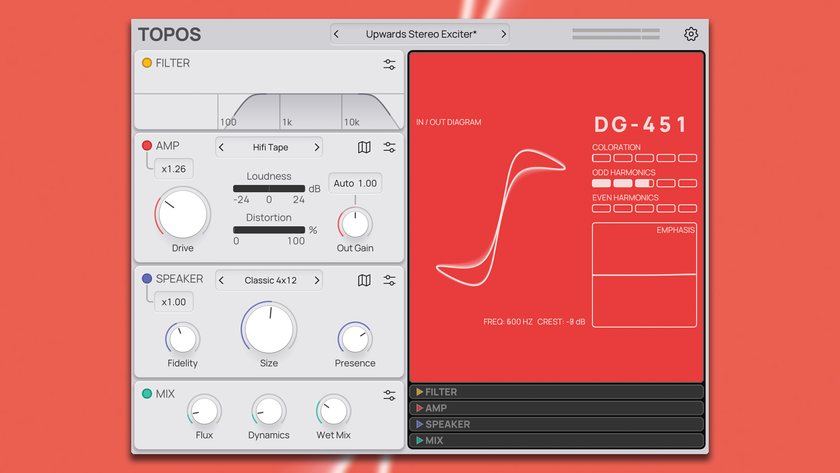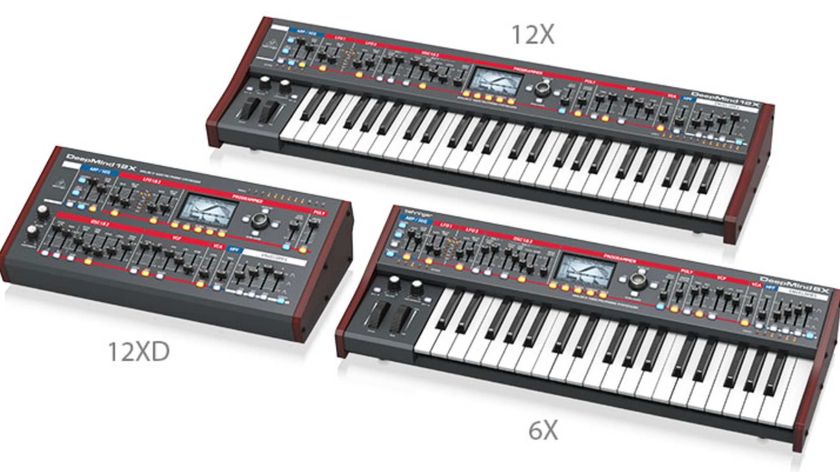Dan Weller’s top 9 tips for recording guitar: "Producing your own band is traumatic"
Sikth man shares some studio wisdom

I have always had a producer ear...
Not only does Sikth guitarist Dan Weller have the benefit of two decades of songwriting and tracking under his belt, but he is also an in-demand producer.
Weller has worked in the studio with the likes of Enter Shikari and Young Guns, and is set to man the production desk for Monster Truck later this year.
“I have always had a producer ear,” Weller says regarding his transition from band member to producer. “I’ve never felt like I’ve needed someone to tell me if I’m in or out of tune or if I’m ahead of or behind the beat because that’s something I’ve always considered to be my thing.
“Back in the day I was a lot sloppier than I am now though, granted. We always produced our own stuff though so I never had anyone there to offer me advice. But through making countless records you realise the benefits of being in tune.”
Given that he has learned the lessons of how to track guitars from both the artist and producer’s perspective, we thought he was the perfect man to ask to put together a whistle-stop list of everything you need to know when recording guitar.
1. Get intonated
“Make sure you are recording a good guitar that is intonated properly. That is the first thing I would say.
“Granted, intonation isn’t as essential if you are just playing something simple but if you are moving up the fretboard then you need to make sure your guitar is intonated properly before you go into the studio.
“I’ve had nightmares in the studio where guitars just don’t sound right and that is how I have learnt how important the intonation is.”
2. Tune up
“Tuning your guitar regularly is also very important. Also tuning by ear.
“If you are playing in a lower tuning then don’t just trust the tuner and think everything will be fine when you record. I always suggest to guitarists to tune from the A string up to the high E string and then tune the low E string by ear.
“Play a power chord and get it in by ear. Then it is dictated by your playing and how hard you’re hitting with the plectrum.”

3. Perfect your finger work
“The way you place your fingers on the fretboard is important as well. Some people are a bit meat fingered.
“I can tell within a second when I watch a guitar player whether it is going to be easy to record with them or not. Some guitarists can feel if it is sharp or flat, they know what to do. With some guitarists it is chunky and you know you’re going to do a lot of Pro Tools work.
“I would never say something is great and then go and re-record it. My morals would never allow that. But, I would never lie to a guitar player. If they’re not playing something well enough I will tell them and if I can offer some advice to improve their guitar playing then I will tell them. I’m not the oracle, but sometimes you need to take some help.
I can tell within a second when I watch a guitar player whether it is going to be easy to record with them or not
“As a producer though, if someone is super skilled you don’t want to be that guy that is trying to dictate to them. If they have got something they need to embrace that and bring it out. As a producer you need to know where that line is. A lot of that comes from respect and chemistry.
“I always advise building a guitarist-producer relationship as people. Then if I say something sucks, it’s ok! You need to be slightly arrogant and at one with your opinion and say something is shit. You might be wrong but you are being paid to offer your quality control.”
4. Get on the beat
“The biggest advice I can possibly give for the studio is that all human beings rush ahead of the beat, everyone does. We all do that naturally.
“There is a pocket that you can sit in that when you have recorded lots you start to feel and you know when you’re in the pocket. Most guitarists think they’re really on the beat but 80-90 percent of guitarists aren’t and I always end up nudging it to the right, I always do that without even thinking about it because it’s a given.
“Occasionally you will get a guitar player in that is on the money and you think, ‘Thank the lord!’ One trick that I use is that I will turn the volume down and I will listen to the plastic hitting the strings. I will align that with the metronome and I will be able to hear it sitting on top. If you’re a bit rushy in the studio then turn the volume down and they will start to feel it. That is a very good trick.”
5. Warm up
“Warming up is key. Warming up never does any harm.
“Your fingers and your muscle memory works better once you are warmed up. I don’t have any set routines, but I might just play a couple of songs by myself and when my fingers are feeling loose then I’m all good.”

6. Don’t worry about winging it
“It is very rare that you go into the studio with a band that has got the album completely down and written. There is always an element of winging it.
“There is also an element of people liking being in the studio and that adds a good vibe and also inspiration and good things and ideas come out because of the pressure.
“Studios are the dream place to hang out so a lot of guitarists come up with great ideas in the studio so it is ok to leave a little bit until the last minute. In Sikth we are adding ideas right to the end and I would never stop that, it’s not my right to stop it. It might be a classic idea that we listen to forevermore.
“You will be listening to your albums forever and you don’t want to walk away saying that you wanted to do this amazing idea but your producer wouldn’t let you. That would be awful.”
7. Find your sound
“Some producers have their own amps and they use those on every record that they do and they have their own sound. I don’t really have my own production sound, I like to tailor the sound of the record to the band that I am working with.
“If possible, I like to use the equipment that the band has, if it is good equipment, because that is how the band will sound live. If the guitars and amps are shit then you sometimes have to suggest other gear to use.
“There are certain microphones that are go-tos for me, I almost always use a 57, I might use a 421 and when you get into multiple mics, phasing is the most important thing. It is the key to things sounding fat so you should never rush when it comes to that stuff.”
8. Learn to compromise
“You need to learn how to be patient and compromise and listen to other people’s advice.
“I would like to go back and tell myself that. I wasn’t a dictator but I knew what I wanted and I thought I was better at it. I learnt that wasn’t the case and I was wrong quite a lot. It took being filmed in the studio for me to think, ‘God, I’m quite an arsehole!’
All of the great records that have ever been made are because everyone pitches in and brings their strengths
“All of the great records that have ever been made are because everyone pitches in and brings their strengths. Sometimes you know you’re right and you have to stick to your guns, but if I could go back in time I would be a lot more passive and let people realise they are wrong before I shut people off because I think I did that a lot back then.”
9. Don’t expect self-producing to be fun
“I produce Sikth so I have to do a lot of pressing record. It is stressful.
“Producing your own band is traumatic. It’s not a fun process necessarily. But it is fulfilling when you get to the end of it.
“While you’re doing it you are public enemy because you’re the guy that is taking control. You deal with everyone on an individual level.”

Rich is a teacher, one time Rhythm staff writer and experienced freelance journalist who has interviewed countless revered musicians, engineers, producers and stars for the our world-leading music making portfolio, including such titles as Rhythm, Total Guitar, Guitarist, Guitar World, and MusicRadar. His victims include such luminaries as Ice T, Mark Guilani and Jamie Oliver (the drumming one).

“This golden gain machine covers the entire spectrum from gritty boost through to full-on fuzz”: Great Eastern FX’s Focus Fuzz Deluxe has got boost, drive, octave, fuzz... everything going on

“The mini humbucker fits into the same sized pickup cavity as a P-90 and delivers low-noise humbucking pickup performance and a slightly brighter and more open tone”: Gibson remixes the Les Paul Special with mini humbuckers

“This golden gain machine covers the entire spectrum from gritty boost through to full-on fuzz”: Great Eastern FX’s Focus Fuzz Deluxe has got boost, drive, octave, fuzz... everything going on

“The mini humbucker fits into the same sized pickup cavity as a P-90 and delivers low-noise humbucking pickup performance and a slightly brighter and more open tone”: Gibson remixes the Les Paul Special with mini humbuckers









